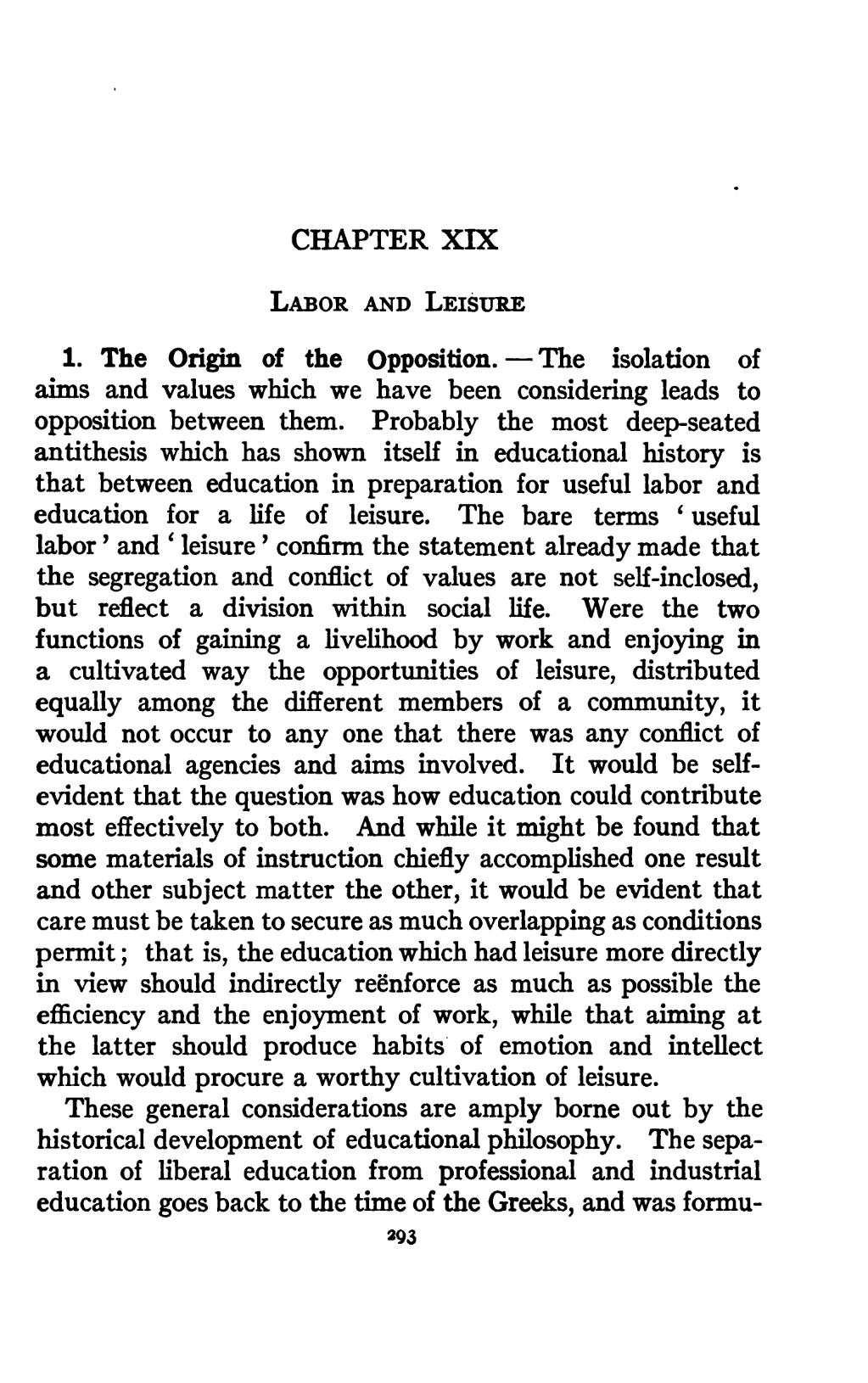CHAPTER XIX
Labor and Leisure
1. The Origin of the Opposition.—The isolation of aims and values which we have been considering leads to opposition between them. Probably the most deep-seated antithesis which has shown itself in educational history is that between education in preparation for useful labor and education for a life of leisure. The bare terms 'useful labor' and 'leisure' confirm the statement already made that the segregation and conflict of values are not self-inclosed, but reflect a division within social life. Were the two functions of gaining a livelihood by work and enjoying in a cultivated way the opportunities of leisure, distributed equally among the different members of a community, it would not occur to any one that there was any conflict of educational agencies and aims involved. It would be self-evident that the question was how education could contribute most effectively to both. And while it might be found that some materials of instruction chiefly accomplished one result and other subject matter the other, it would be evident that care must be taken to secure as much overlapping as conditions permit; that is, the education which had leisure more directly in view should indirectly reënforce as much as possible the efficiency and the enjoyment of work, while that aiming at the latter should produce habits of emotion and intellect which would procure a worthy cultivation of leisure.
These general considerations are amply borne out by the historical development of educational philosophy. The separation of liberal education from professional and industrial education goes back to the time of the Greeks, and was formu-
293
